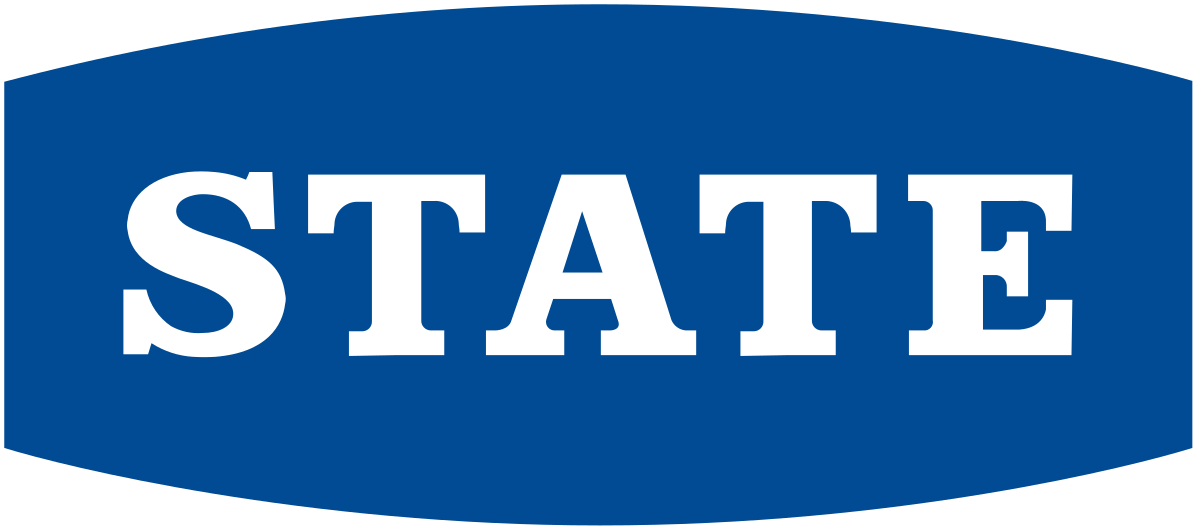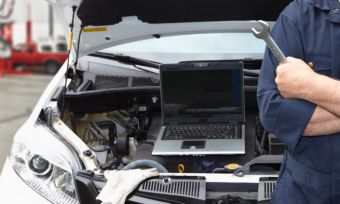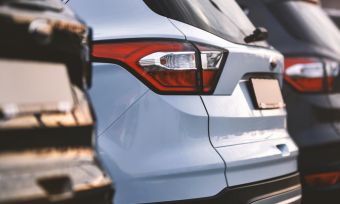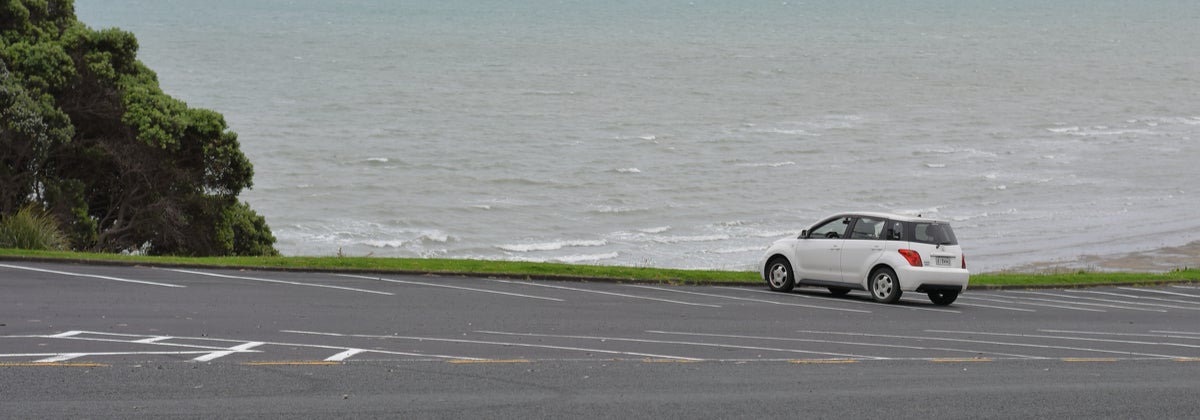There’s a lot to consider when buying a used car. Even before you inspect anything! From settling on a budget, to determining what sort of car will best suit your needs. To weighing up the pros and cons of different models. It’s no small task.
Meanwhile, when it does come to inspections and ultimately making a purchase, there’s a range of checks you should be undertaking and questions you should be asking.
A car can cost a fortune. Whether that’s due to buying the latest model, or the latest dud and incurring costly repairs. So read on for a comprehensive guide on everything you should know when buying a used car.
In this article we cover:
- Pre-purchase: Do your research
- Where to buy: Private seller or dealer?
- Inspecting a car
- Due diligence
- Navigating the buying process
- Car insurance

Pre-purchase: do your research and set a budget
As part of your pre-purchase research, it’s important to weigh up both your vehicle requirements and the limits of your budget.
In settling on a budget, keep in mind that if you’re planning on using finance, you’ll also be paying interest, adding to the total cost of the vehicle. Tools such as Canstar’s personal loan repayment calculator can help you get a gauge on costs, payment frequency and the length of repayment periods.
When budgeting you should also factor in car insurance (see below) and be realistic about your budget and financial situation.
Doing your homework is important. Some factors worthwhile keeping in mind are:
- Size – do you need a large vehicle such as a station wagon or SUV to accommodate family or equipment? Or will a smaller vehicle, such as a compact hatchback be enough?
- Fuel economy – greater fuel efficiency means lower running costs (and lower emissions). The Vehicle Fuel Economy Label (VFEL) provides a rundown of a car’s estimated yearly running costs, plus an efficiency star rating. Gen Less’s fuel-efficient driving tool and the Rightcar website also provide insights into running costs.
- Safety features – from airbags to anti-lock brakes, consider the full scope of safety features. A vehicle’s safety rating label (from one to five stars) sits alongside the VFEL. Information on vehicle safety is available via Rightcar.
- Electric vehicles – the recently introduced Clean Car Discount has provided an additional incentive to go electric. It’s worthwhile weighing up how an electric vehicle compares to traditional options, taking into account running costs over the longer term.
- Accessories – from smartphone connectivity to reversing cameras. Are there any additional features you place a priority on?
It is also important to keep in mind potential maintenance and servicing costs. Some vehicle models may present issues when it comes to accessing suitable parts.
In undertaking your pre-purchase research, read up on specific vehicle models of interest online. User reviews and further research, incorporated into your checklist, give you a head start once you are ready to inspect a vehicle.

Where to buy: private seller or dealer?
Okay, so you’ve done your pre-purchase research. It’s time to look at some cars. So, where to start? Scanning online automotive classifieds is a good starting point. Check out some sites and listings to get a feel for the market. This will help you see the prices being offered.
Once you’ve done this, you need to find a seller.
There are two main options when it comes to buying a used car:
Buying privately – you could potentially get a better deal by buying privately. Especially if you do your homework and have some mechanical knowledge. There are more options for cars under $10,000, while sales may also be more straightforward. Sellers won’t be interested in upselling or adding extra costs.
However, buyers have fewer legal protections. Private sellers don’t need to be registered, display a Consumer Information Notice (CIN), provide information about the vehicle’s history and any money owing, or comply with the Consumer Guarantees Act (CGA) or the Fair Trading Act (FTA).
Buying from a dealer – when buying from a dealer online, at a car yard or auction, you will have more consumer rights than buying privately. All dealers need to be registered, comply with the CGA and FTA, and provide accurate information in the CIN.
However, it can be more difficult to find a range of low-cost vehicles at a dealership. Plus there can still be risks involved. Most dealers have honest business practices, but you should always conduct careful checks. For example, how do their reviews look?
Whichever option you ultimately choose, having a firm idea of what you want, and clear expectations with regard to a used car’s condition and features (as outlined in your checklist) will act as a strong foundation in securing a better deal.
Inspecting a car: be prepared and take your time
Once you’ve pinpointed some options, you’ll need to arrange for vehicle inspections. At this stage of the process, it’s important to take your time and be thorough in checking off all of your respective requirements.
With this in mind, put together a list of questions to ask the seller. The Consumer Protection website provides a great rundown of questions to ask when viewing a vehicle.
When inspecting a vehicle:
- Take your time – make sure you carefully examine everything you want to inspect (not just what the seller shows you)
- Inspect the car on a sunny day – which will make it easier to see any visual clues regarding its real condition
- Older, cheaper cars – have more chance of something being wrong (especially cars that have done over 100,000 km), and you should be especially wary of engine wear and rust
- Additional costs – be aware of what you can fix and the cost of any work that may need to be done
- Inspection aids – should include a safety checklist (see below), a magnet to check for hidden rust repairs and a torch to look under the bonnet. It’s also worthwhile bringing a friend (preferably someone with a bit of car knowledge)
With regard to the safety checklist, the Waka Kotahi website provides a rundown of what to look for, covering a vehicle’s exterior, interior and under the bonnet, and what to keep in mind when conducting a test drive.
If the inspection goes well, and you are potentially keen on a vehicle, it is important to do your due diligence (see the below section) and then arrange for a professional inspection.
You should always insist on having a full professional inspection before buying any used car. Most garages perform these inspections and specialist services are also available.

Do your due diligence
Beyond physically inspecting a car, you will need to do your due diligence. Conducting these checks could prevent issues further down the track.
Checks you can conduct include:
- Registered person – confirm you are buying from the person responsible for the vehicle
- Safety issues – check to see if the vehicle has any known safety issues
- Stolen vehicles – you can check if the vehicle has been reported stolen via the New Zealand Police website
- Expiry dates – does the vehicle have a current licence (rego), warrant of fitness (WoF) or certificate of fitness (CoF)?
- Road user charges (RUC) – do RUC charges apply to the vehicle?
- Vehicle records – check to see if the vehicle identification number (VIN) and plate number match official records (check the vehicle’s Certificate of registration, call Waka Kotahi, or search online, as various organisations perform these checks)
- Security interest – check to see if there is finance owing on the vehicle
Time to buy a used car: navigating the purchase process
Once you’ve ticked off everything on your checklist and are ready to make a purchase, it’s important to understand how the purchase process works.
When buying via a dealer, you enter into a sales agreement. When buying privately, this is not required. However, it’s still possible to document the conditions of the sale.
Some things to consider in the buying process are:
- Dealer sales agreements – before signing, carefully check all the details, making sure everything is accurate and matches up. Don’t sign anything you have any doubts about
- Deposits – cash deposits should not be paid. If the seller insists, it may be a sign to shop elsewhere
- On-road costs – confirm with the dealer that the total price includes or excludes on-road costs. On-road costs include a WoF, registration, licence (rego) and road user charges, if you buy a diesel vehicle. If it does include on-road costs, ask for a breakdown of what on-road costs are included in your sale price
- Extended warranties or breakdown insurance – is usually not worth it, as you are covered by the CGA when buying from a dealer. If you do go ahead with either, confirm what is covered and excluded, and any special conditions that need to be met
- Buying privately – as advised above, a sales agreement is not required, however you can create your own contract with the seller. It won’t offer you more legal protections, but will provide documented evidence of the sale. This will come in handy in the event of an unresolvable post-purchase problem, if the matter needs to be taken to the Disputes Tribunal
Once you’ve purchased a car, both you and the seller must notify Waka Kotahi of the change of ownership (within seven days to avoid fines or infringements). Further information is available here.

Car insurance: Consider your options
Car insurance is not compulsory in New Zealand. But, you should carefully consider your insurance options. If you have a vehicle on the road, you really should have it insured.
There are some different types of vehicle insurance available. The cost and cover vary between policy types and policy providers.
The policy types include:
- Third-party – provides cover if you damage somebody else’s car, or your car damages another person’s property
- Third-party, fire and theft – provides the same cover as third party insurance, along with cover if your car is stolen or catches fire
- Comprehensive – provides cover for accidents you cause or which are caused by someone else. It covers the damage to yours, or somebody else’s, property or car, along with some other costs (such as towing fees)
- Add-ons – in addition to comprehensive policies, you can buy extra cover (such as roadside rescue)
Car Insurance with Canstar
Finding the right Car insurance provider and policy can be a challenge. You need to weigh up the costs, the level of cover, and what your car is worth. It’s a lot to think about. Thankfully, Canstar helps take out some of the stress. We compare Car Insurance providers for you, to help make the decision a little easier.
So if you’re thinking about buying a new, or used, car. Or you need insurance for your current vehicle. Click the button below to find the best Car Insurance provider for you.
Compare car insurance with Canstar
About the author of this page
![]() This report was written by Canstar author Martin Kovacs. Martin is a freelance writer with experience covering the business, consumer technology and utilities sectors. Martin has written about a wide range of topics across both print and digital publications, including the manner in which industry continues to adapt and evolve amid the rollout of new technologies
This report was written by Canstar author Martin Kovacs. Martin is a freelance writer with experience covering the business, consumer technology and utilities sectors. Martin has written about a wide range of topics across both print and digital publications, including the manner in which industry continues to adapt and evolve amid the rollout of new technologies
Enjoy reading this article?
You can like us on Facebook and get social, or sign up to receive more news like this straight to your inbox.
By subscribing you agree to the Canstar Privacy Policy








Share this article